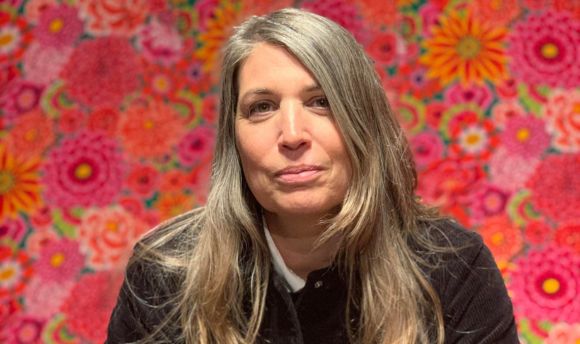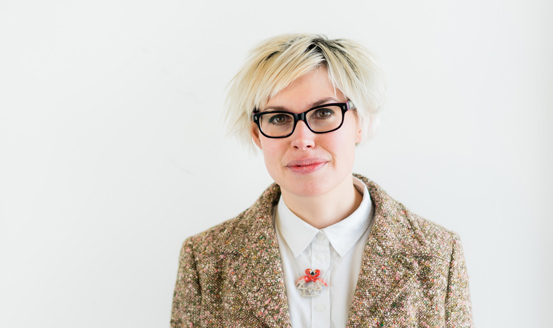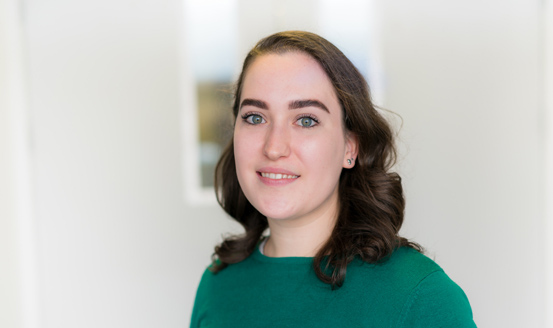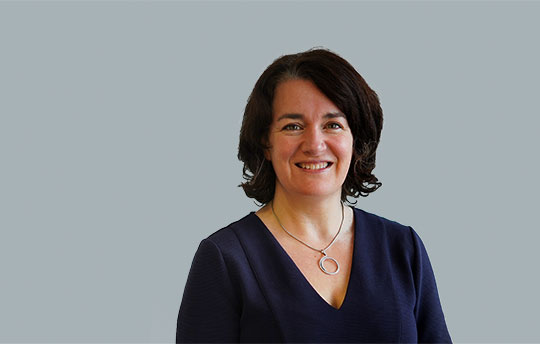- This course is still available for entry in September 2025.
- International applications close for the September intake on the 30 June 2025 for all applicants who would require to be sponsored on a Student visa to study here.
Arts, Festival and Cultural Management - MA
Are you interested in shaping the future of the arts and cultural sector? This long-established and forward-thinking MA in Arts, Festival and Cultural Management will allow you to gain a better understanding of the management of cultural organisations and the individual factors that influence the environment in which they function.
The course will appeal to a range of individuals and will qualify you for a broad range of management positions within a wide spectrum of cultural organisations and festivals.
It may interest those already working in the sector who want to gain a formal qualification as well as those with undergraduate degrees, perhaps in arts and humanities subjects, who have not studied management previously and who are looking for a career change.
The course is delivered both full time and part time with start dates in September and January, and offers the flexibility to develop your skills and knowledge whilst in employment.
Why QMU?
- Flexible study options that are particularly suitable if you are already working in the sector or wish to do so when studying: Available full time, part time or by single module study, you will be able to study around your work commitments. The course offers both a September and January start each year.
- A course that will assist you in your current role or create a route to a new career: You will be qualified for a broad range of management positions within a wide spectrum of cultural organisations and festivals.
- Our small class sizes are perfect for sharing experiences and fostering new ideas: Enjoy the support of staff and encouragement of fellow students. While lecturers are experts in their fields, we believe it is vitally important to have a strong community of learners around you. These will no doubt be important to your learning and development, but also as future colleagues and support networks.
- Unique course content designed to prepare you for this broad sector: Our focus on the relationship between theory and practice aims to ensure that you become a reflective practitioner that is not only aware of the insights of festivals and cultural management, but that you are aware of the contextual realities of this practice.
- Teaching team with wide ranging expertise: Our staff have a wealth of experience in both the theory and practice of cultural management, and all come from very different perspectives, giving our students a broad overview of the subject. The lecturers have collectively been involved in such activities as writing national policies; guiding international research; leading cultural projects and businesses; and advising government on cultural policy. Our team’s research has also been published widely - including several books on the subject - and we have written reports for national bodies on a wide variety of subjects. As such, we hold significant and broad knowledge about the sector to share with students.
- Great location for studying and future employment in this area: Our location, just six minutes by train from the heart of the world’s greatest festival city, is sure to enrich your learning experience and provide many opportunities for work-based experience and future employment.
- You’ll be part of an international cohort of students: Students on this course come from across the globe and sharing your experiences will prove to be of real benefit.
- Optimum balance of theoretical and practical learning: The course offers a variety of learning experiences, including industry-based learning, which are sure to enrich your studies. Real-world assignments are designed to develop and consolidate your new key skills.
- Industry input and our professional links ensures you are up to date with key developments: The course has been developed over time in co-operation with key national cultural agencies and other bodies with a strategic interest in the development of arts organisations and festivals. Our location in the ‘Festival City’ also allows for strong practical links between the course and the many arts, festival and cultural organisations based in and around Edinburgh, across Scotland and the UK.
Interview with MA Arts, Festival and Cultural Management student, Shuyi Hsieh
By encouraging you to become critically reflective, the course will develop your knowledge of the contemporary issues affecting the management of arts organisations and festivals and equip you with the practical management skills that are essential for developing a career in the field. Mindful of the need for students to develop vocational skills, a number of assignments are orientated towards developing the knowledge and skills required to become an effective practitioner in the field. In addition, students are required to arrange and undertake practical experience within cultural organisations to complement their studies. Our networks to industry are very strong, and resourceful students can utilise these links to develop their own career within the cultural sector.
Structure and exit awards
You can opt to study for the full MA (180 credits), a PgDip (120 credits) or a PgCert (60 credits).
You can also register as an associate student to complete a single module for CPD. On completion of a single module, you may wish to complete further modules and progress your studies to a named award. We also offer a block-taught PgCert Arts Management. Contact Alice McGrath for more information on single module study.
Teaching, learning and assessment
Teaching comprises a combination of lectures, seminars, tutorials, case studies, simulation exercises, field trips and projects, as well as a period of industry-based learning. Assessment throughout the course will take a variety of forms, including essays, reports, exams, group and individual presentations, as well as a dissertation or project for the final MA component.
Placements/Industry-based learning
The course does not require a formal placement, but we do require students to take up industry-based learning opportunities to assist their learning and to put the theory into practice.
These industry-based learning opportunities are offered by many of the world-famous organisations that are based in Edinburgh (eg the Edinburgh International Festival, Fruitmarket Gallery, Lyceum Theatre).
Although we support students to find opportunities, you are required to secure your own arrangements in line with your personal interests.
As we are in Edinburgh, the world’s first and best ‘Festival City’, there are no end of opportunities in this regard, and we are well regarded by our industry peers: many of our alumni now work in these organisations and advocate for us.
If you are already working in the sector, you can use your existing employment as the site for your industry-based learning.
Teaching hours and attendance
Your specific timetable will depend on whether you are studying full time, part time or a single module, but all teaching on the course occurs on either a Thursday or Friday. For those undertaking part-time study, you will only be required on campus for one of these days per each year of study. Each module involves around 20 hours of face-to-face teaching per 10-week semester. Timetables will normally be available to matriculated students around one month before you commence your studies.
Class sizes
Normally, there are around 20 to 25 students enrolling on the course each year.
Teaching staff
You can read more about the teaching staff on this course at the bottom of this page. You can also click on the staff profiles immediately below. Please note that teaching staff is subject to change.
You will study the following modules:
- Strategy and Sustainability within Cultural Organisations (20 credits): This module will support students to critically reflect on economic, social, and environmental sustainability in the arts and cultural sectors and develop strategic knowledge, skills and competencies to contribute to a more sustainable future.
- Contemporary Debates in Cultural Policy (20 credits): This module will provide students with a critical understanding of key cultural policy debates that impact the work of managers in the cultural and creative industries. They will look at policy in a critical manner and assessments include a short article as well as a longer essay examining the function of policy in regards to the cultural sector.
- Designing Qualitative Research (20 credits): This module will prepare students to undertake a postgraduate research project by developing their knowledge and understanding of qualitative research methodologies and methods. Students will interrogate their own assumptions of knowledge production and research, and the assessment (a Lit Review and Research Proposal) can be used as a mechanism to prepare for the dissertation project
- Fundraising, Finance and Development (20 credits): This module will equip students with a critical understanding of the principles and practices of fundraising, development and financial management. The assessments invite students to examine financial support mechanisms (eg, completing a funding application or designing a sponsorship pack) as well as financial literacy exam. This module marks our course as quite unique in this regard.
- Planning and Marketing Cultural Projects (20 credits): This module will provide students with a critical understanding of the principal skills, techniques and practices necessary to manage and evaluate arts and cultural projects. This modules looks at the practical realities of managing and evaluating cultural projects and learning occurs around hypothetical projects that the students plan in groups.(Note: if you can prove you have already undertaken significant experience within this study, you can opt to take another 20 credit module from the School of Arts, Social Sciences and Management)
- Managing Relationships in the Arts and Cultural Sector (20 credits): This module will provide students with a critical understanding of the principles and practices of managing relationships in arts and cultural organisations and will support students to become reflective practitioners, confident in their ability to employ and adapt theory in relation to the organisational contexts in which they may work. Students will attend field trips and hear from experts in the field who will talk about their practical realities as cultural managers. This is the module that also houses the ‘industry-based experience’ element
Progressing to an MA?
- Dissertation Project (60 credits): For the MA you will also complete a dissertation project. Through undertaking a self-directed project that suits your strengths, interests and career aspirations, you will have the opportunity to undertake a substantial piece of work that will develop your academic rigour, professional skills, independence and self-direction. This can be a 12,000-word research dissertation; or a Business-planning document (eg a Feasibility study) along with a 5,000-word critical reflective essay; or a Cultural Project with associated portfolio of evidence and 5,000-word reflective essay.
You will be qualified for a broad range of management positions within a wide spectrum of cultural organisations and festivals. Previous graduates have gone on to work in theatres, performing arts organisations, galleries, local government and cultural agencies. In addition, many now work in festivals within the UK, Europe and internationally. Potential careers might include producing, fundraising, marketing, programming or audience development, as well as many other roles across the cultural industries.
Entry requirements
- UK Honours degree or equivalent
- Bachelor ordinary degree or equivalent plus 2 years relevant work experience
- HND or equivalent plus 5 years relevant work experience
- No undergraduate degree study could be considered with a minimum of 7 years relevant work experience
If you do not meet any of the above criteria, we may still be able to consider you for the Associate route which would allow you to enrol onto one module initially.
International: You will be required to provide evidence of English language competence at no less than IELTS 6.5 with no individual component score less than 6.0.
Disability/health conditions
If you have a disability, long-term physical or mental health condition, or learning disability, it should not stand in the way of your studying at QMU. However, if you are not sure whether your disability might be a barrier in your studies or in relation to the professional standards, please contact the disability service who will be able to have a conversation with you about reasonable adjustments and supports available to you.
Applying for this course
For more information on applying, or to apply for this course, please follow the links in the 'Start your application' box at the top right of this page.
Application deadline
Home students: End of August for September 2025 start and December for January 2026 start.
International students: End of June for September 2025 start and end of November for January 2026 start.
Contact Alice McGrath (Programme Leader) or contact Admissions
We would be delighted for you to visit us on campus to find out more about our MA Arts, Festivals and Cultural Management.
Below are some Frequently Asked Questions we have about the course: they should provide you with all the information you need, but if you require more specific details, please feel free to contact Dr Anthony Schrag or contact Alice McGrath (Co-Programme Leaders).
The questions we address are:
- What is the difference between the PgCert, PgDip and MA?
- What is the difference between the full-time and the part-time pathway?
- What is the difference between the January and September starting points?
- What is the time commitment? How often do I need to be on campus?
- What are the modules? When are they taught?
- How do the ‘Block Taught’ modules work?
- What are the Industry-based Learning requirements? (Internship/Placement)
- What kind of assignments will I be required to do?
- Am I still eligible to apply if I do not have an undergraduate degree?
- I have not studied in some time – will I be able to complete the course?
- Who are the other people that generally attend the course?
- Can I do any reading to prepare myself for the course?
What is the difference between the January and September starting points?
As above, there is no academic difference between the starting points: the only differences are the order you will complete the modules in and the length of time you are required to commit to the course. As a student must complete all modules before taking the final dissertation project, a full time January start will take 15 months to complete the course, but a full time September start will take 12 months.
To illustrate this:
- A full time, September start will begin in Semester 1 (Sept - Dec), then move on to Semester 2 (Jan - Apr) and then to the final dissertation module in Semester 3 (May - Aug) with a successful degree being conferred in June of that year. The graduation would be in the July of the following year.
- A full time January start, however, will begin in Semester 2 (Jan - Apr), have the summer months off from studies (Semester 3: May - Aug), begin again in Semester 1 (Sept - Dec), and then complete their final dissertation module in Semester 2 (Jan - Apr) with a successful degree being conferred in June of that year. The graduation would be in the July of that year.
While there this attention to both within each term, some students find that the January semester is more ‘practically’ oriented and the September term more ‘theoretically’ focused: going through the whole MA will ensure you explore both elements.
What are the modules? When are they taught?
What are the modules? When are they taught?
|
Semester |
Code |
Module Title |
|---|---|---|
|
Semester 1 (Sept - Dec) |
TM185 |
Contemporary Debates in Cultural Policy |
|
TM186 |
Designing Qualitative Research |
|
|
TM187 |
Strategy and Sustainability within Cultural Organisations (Block taught) |
|
|
Semester 2 (Jan - April)
|
TM188 |
Fundraising, Development and Finance (Block taught) |
|
TM190 or TMXXX |
Planning and Marketing Cultural Projects or Another module from the ASSaM PG Module Suite |
|
|
TM190 |
Evaluating Arts and Cultural Projects |
|
|
Year Long (Sem. 1 & 2) |
TMTBC |
Leadership and Arts Management in Practice
|
|
Semester 2 or 3 (Jan - May OR May – Aug) |
TM160 |
Dissertation Project (Self-Directed) |
On top of this, we would also suggest at least 16 to 20 hours a week to self-directed study (for Full Time Students) to focus on associated group work, reading and assignments. There are also field-trips, as well as industry-based learning elements to consider. If you are already working within the field, you can use this towards your industry-based learning requirements - see below for more information about this.
Bell, D. and Oakley, K. 2015. Cultural Policy. Abingdon: Routledge
We also have a wide range of nationalities who can offer diverse international perspectives and cross-cultural network opportunities.
QMU has a number of articulation agreements in place with partner colleges and universities in Canada.
Our articulation agreements allow students from particular Canadian institutions to join particular QMU course/s, including this one, often with 'advanced standing' based on their prior learning.
More information on articulation routes with Canadian institutions.
- The delivery of this course is subject to the terms and conditions set out in our 2025/26 Entry - Terms and Conditions (Postgraduate).
- The information on this page is correct at the time of posting (October 2024) but is subject to change. In the event that modules change, QMU will seek to use reasonable endeavours to ensure that there is no detrimental impact on students. Please keep an eye on this page for updates.
Become your best you: study at QMU
Course Overview
Join us at one of our Postgraduate Open Events
Find out about online and in-person opportunities to meet with us to find out more about our postgraduate courses and study at QMU.
Postgraduate Open Events - More Info and BookingsCourses You Might Also Like
- MA Participatory Arts
- MSc Global Film Industries
- MSc Digital Campaigning and Content Creation
- MSc International Marketing
- MSc International Management and Leadership
- MSc Strategic Communication and Public Relations
- PgCert Arts Management
- PgCert Strategic Communication and Public Relations
- PgCert Participatory Arts



















